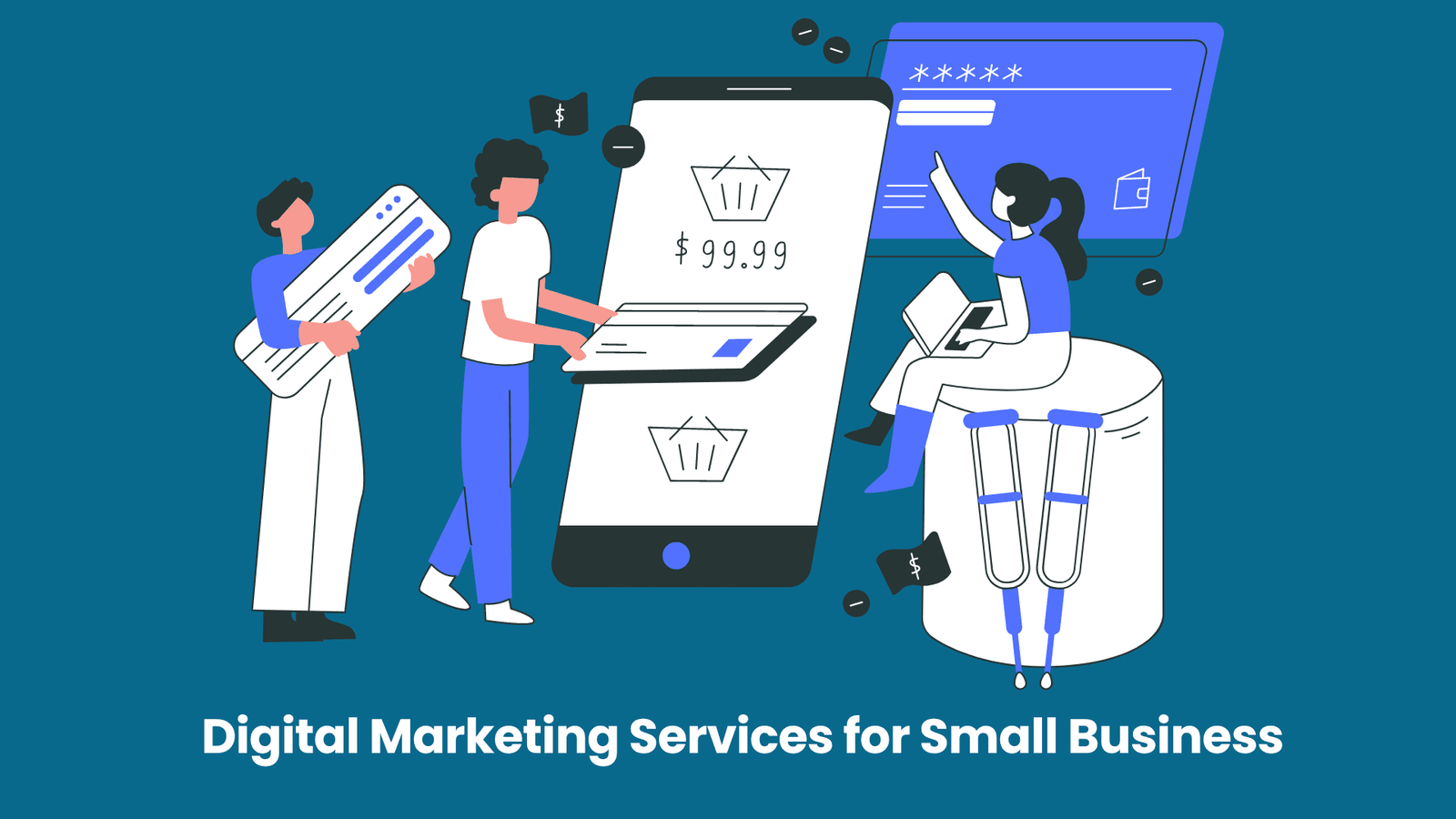Explore the top healthcare software development companies revolutionizing patient care through innovative digital solutions. Learn about their services, expertise, and how they enhance healthcare efficiency, engagement, and compliance.
Top Healthcare Software Development Companies: Revolutionizing Patient Care through Technology
In recent years, the healthcare industry has witnessed a monumental shift towards digital solutions. With increasing demand for improved patient care, streamlined operations, and effective communication, healthcare organizations are turning to software development companies to meet their needs. The rise of telemedicine, electronic health records (EHR), and patient management systems has created a lucrative market for healthcare software development. In this article, we will explore some of the top healthcare software development companies that are at the forefront of this technological revolution.
Why Choose Healthcare Software Development?
Healthcare software development is crucial for several reasons:
- Efficiency: Automating processes reduces manual labor and improves operational efficiency.
- Data Management: Robust software solutions provide secure and organized management of patient data.
- Patient Engagement: Patient-centric software improves communication and enhances patient experience.
- Regulatory Compliance: Healthcare software must comply with strict regulations like HIPAA in the U.S., ensuring data privacy and security.
Top Healthcare Software Development Companies
Here’s a look at some of the top healthcare software development companies that are transforming the industry.
| Company Name | Location | Year Established | Notable Products/Services | Key Clients |
|---|---|---|---|---|
| Cognizant | Teaneck, NJ, USA | 1994 | Digital Health Solutions, EHRs | BMS, Healthfirst |
| EPAM Systems | Newtown, PA, USA | 1993 | Digital Healthcare Solutions, Analytics | Medtronic, Philips |
| Toptal | Remote | 2010 | Custom Healthcare Software Development | UnitedHealth Group |
| Intellectsoft | Palo Alto, CA, USA | 2010 | Telehealth Platforms, Healthcare Apps | GE, Stanford University |
| Zywave | Milwaukee, WI, USA | 1996 | Benefits Administration Software | Various Health Plans |
| HCL Technologies | Noida, India | 1976 | Healthcare IT Solutions, Cloud Services | NHS, Apollo Hospitals |
| CureMD | New York, NY, USA | 1997 | EHR, Practice Management Software | Various Healthcare Providers |
| MediSprout | New York, NY, USA | 2010 | Telehealth Solutions, Patient Communication | Northwell Health |
1. Cognizant
Cognizant is a global leader in technology and consulting services. Their focus on digital health solutions and EHR implementation has made them a go-to partner for healthcare organizations. With a rich portfolio that includes analytics, patient engagement platforms, and care management systems, Cognizant is dedicated to improving patient outcomes.
2. EPAM Systems
EPAM Systems is renowned for its expertise in software development and consulting. Their healthcare division focuses on developing digital solutions that improve patient care and streamline operations. EPAM offers services ranging from EHR integration to data analytics, helping organizations make data-driven decisions.
3. Toptal
Toptal is known for connecting businesses with top freelancers in the technology sector. Their healthcare software development services are provided by highly skilled professionals who have extensive experience in the healthcare industry. Toptal is ideal for organizations looking for tailored solutions to meet their unique needs.
4. Intellectsoft
With a strong focus on mobile and web applications, Intellectsoft develops innovative telehealth platforms and patient management systems. Their solutions are designed to enhance communication between healthcare providers and patients, ensuring that care is accessible and efficient.
5. Zywave
Zywave specializes in benefits administration software, which is crucial for managing employee healthcare benefits. Their platform allows organizations to streamline benefits management while ensuring compliance with regulations. This focus on employee health benefits makes Zywave a critical player in the healthcare software market.
6. HCL Technologies
HCL Technologies provides comprehensive healthcare IT solutions, focusing on cloud services, analytics, and application management. Their expertise in regulatory compliance ensures that healthcare organizations can navigate the complex landscape of healthcare regulations with ease.
7. CureMD
CureMD offers a range of software solutions, including EHR and practice management systems. Their user-friendly platforms are designed to enhance the workflow of healthcare providers while ensuring optimal patient care. CureMD is recognized for its innovative approach to healthcare technology.
8. MediSprout
MediSprout specializes in telehealth solutions that facilitate virtual visits and patient communication. Their platform is designed to improve access to healthcare services and enhance the patient experience, making it a valuable tool for healthcare providers.
Factors to Consider When Choosing a Healthcare Software Development Company
When selecting a healthcare software development partner, it’s essential to consider various factors:
- Experience: Look for companies with a proven track record in the healthcare sector.
- Expertise: Assess their technical expertise in developing solutions that meet regulatory requirements.
- Customization: Ensure the company offers tailored solutions that fit your specific needs.
- Support and Maintenance: Choose a partner that provides ongoing support and maintenance for their products.
- Client Testimonials: Check reviews and testimonials from previous clients to gauge their satisfaction.
Custom Healthcare Software Development Services
In today’s fast-paced healthcare environment, custom healthcare software development has emerged as a vital solution for organizations seeking to enhance patient care, improve operational efficiency, and meet specific regulatory requirements. Custom software is designed to address the unique needs of healthcare providers. Ensuring tailored functionalities that generic solutions may not offer.
Advantages of Custom Healthcare Software Development
- Tailored Solutions: Custom software can be developed specifically for the unique workflows and requirements of a healthcare organization, which improves adaptability and user experience.
- Scalability: As healthcare organizations grow, custom software can be easily scaled and modified to meet evolving demands without a complete overhaul.
- Integration: Custom solutions can seamlessly integrate with existing systems. Such as electronic health records (EHR), accounting systems, and other technologies in use, ensuring smooth data flow and operations.
- Enhanced Security: Custom software often features enhanced security protocols tailored to regulatory standards such as HIPAA, assisting healthcare providers in safeguarding sensitive patient data.
- Improved User Experience: A solution specifically designed for the end-users (healthcare providers, patients, etc.) can significantly enhance overall satisfaction and usability.
Types of Custom Healthcare Software Solutions
- Electronic Health Records (EHR): Customizable EHR systems allow healthcare providers to store, manage, and share patient data efficiently while ensuring compliance with healthcare regulations.
- Telehealth Solutions: Tailored telehealth platforms enable healthcare providers to offer virtual consultations, patient monitoring, and remote care that cater to the specific needs of their patients.
- Patient Management Systems: Customized patient management software helps streamline appointment scheduling, billing, and follow-up processes.
- Healthcare Mobile Apps: Mobile solutions developed for patients and healthcare providers create avenues for better communication, appointment reminders, medication tracking, and more.
- Clinical Decision Support Systems (CDSS): Custom CDSS can provide healthcare professionals with intelligent insights and recommendations based on patient data, improving decision-making and patient outcomes.
Factors to Consider When Opting for Custom Healthcare Software Development
- Regulatory Compliance: Ensure that the software development adheres to healthcare regulations, including HIPAA, to protect patient data.
- Stakeholder Involvement: Involve key stakeholders such as healthcare professionals and IT staff in the development process to ensure the software meets practical needs.
- Cost vs. Benefit: Analyze the investment required for custom development against potential savings in efficiency, compliance, and patient care.
- Vendor Experience: Choose a software development company with a proven track record in the healthcare sector to ensure expertise and reliability.
- Ongoing Support: Evaluate the availability of post-launch support and maintenance services to ensure long-term functionality and security.
Conclusion
The healthcare landscape is rapidly evolving, and partnering with the right healthcare software development company can make a significant difference in achieving your organization’s goals. The companies mentioned in this article represent the best in the industry. Each offers unique solutions to enhance patient care and streamline operations. By leveraging the power of technology, these companies are helping to pave the way for a more efficient and patient-centric healthcare system.
As the industry continues to embrace digital transformation, selecting a reliable software development partner will be crucial in navigating the challenges and opportunities that lie ahead. Whether you’re looking to implement an EHR system, develop a telehealth platform, or enhance patient engagement. These top healthcare software development companies are equipped to help you succeed in your journey toward innovation and excellence in patient care.
Custom healthcare software development is a critical investment for healthcare organizations looking to optimize patient care, enhance operational efficiency, and comply with regulatory requirements. By leveraging tailored solutions, organizations can address specific challenges and pave the way for a more effective and responsive healthcare system. As the healthcare landscape continues to evolve, the importance of bespoke software solutions will only increase, making it imperative for organizations to seek development partners who understand their unique needs and can provide innovative solutions.
FAQs
1. What is healthcare software development?
Healthcare software development involves creating software applications that address the specific needs of healthcare organizations. This includes solutions for electronic health records (EHRs), telemedicine, patient management, and analytics to improve patient care and streamline operations.
2. Why is software development important in healthcare?
Software development is crucial in healthcare as it enhances efficiency, ensures robust data management, improves patient engagement, and helps organizations comply with regulatory standards. It enables healthcare providers to automate processes and improve the quality of patient care.
3. How do I choose the right healthcare software development company?
When selecting a healthcare software development company, consider factors such as their experience in the healthcare sector, technical expertise, ability to provide customized solutions, ongoing support and maintenance, and client testimonials.
4. What are some examples of healthcare software solutions?
Examples of healthcare software solutions include electronic health records (EHR), telehealth platforms, patient management systems, analytics tools, and benefits administration software. These solutions help healthcare organizations manage patient information, enhance communication, and comply with regulations.
5. How can technology improve patient care?
Technology improves patient care by facilitating better communication between providers and patients, enhancing the accessibility of healthcare services through telehealth solutions, and allowing for data-driven decision-making through advanced analytics and streamlined workflows.
6. What regulatory compliance is required for healthcare software?
Healthcare software must comply with various regulations, such as the Health Insurance Portability and Accountability Act (HIPAA) in the U.S., which safeguards patient data privacy and security. Compliance ensures that the software meets the legal standards for handling sensitive healthcare information.
7. Can a healthcare software company provide ongoing support?
Yes, many healthcare software development companies offer ongoing support and maintenance for their products. This includes updates, troubleshooting, and assistance with any issues that may arise, ensuring that the software remains functional and up to date.
8. What is telemedicine, and how does software support it?
Telemedicine refers to the remote delivery of healthcare services using technology. The software supports telemedicine by providing platforms for virtual appointments, secure communication between patients and providers, and tools for managing patient records remotely.













